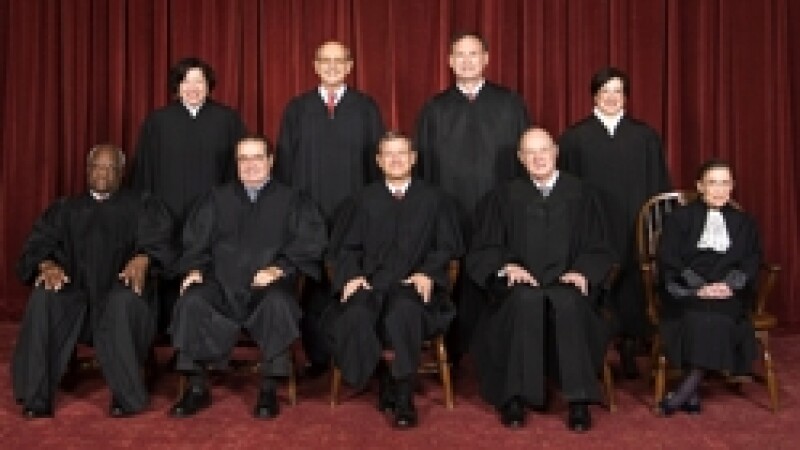In their decision, the justices overturned a previous ruling by the Court of Appeals for the Eleventh Circuit, which found that the payments are permissible provided they do not keep competitors off the market for longer than the term of the patent covering the drug.
The practice, known as a “reverse payment” or “pay-to-delay” deal, resulted from a loophole in the 1984 Hatch-Waxman Act, which encouraged generic drug companies to sue to invalidate patents held by brand name rivals in an attempt to reduce the cost of medication.

The dispute, Federal Trade Commission v Actavis, related to a brand name drug called AndroGel (testosterone gel), made by pharmaceutical company Solvay. Actavis and Paddock filed applications for generic rivals to AndroGel. Actavis and Paddock claimed Solvay’s patent was invalid and that their drugs did not infringe it. Solvay sued Actavis and Paddock for patent infringement.
After the FDA approved the generic version of the drug made by Actavis, Actavis entered into a reverse payment deal with Solvay, agreeing not to bring its producct to market for a specified period for a fee. Paddock and Par, a third manufacturer, made similar agreements with Solvay.
The FTC sued on antitrust grounds, but a district court dismissed the case. The FTC appealed, but the Eleventh Circuit concluded that as long as the anticompetitive effects of a settlement fall within the scope of the patent covering the drug, the deal is legal.
The Supreme Court threw out the appellate court’s ruling concerning the scope of the patent, but disagreed with the FTC’s claim that pay-to-delay deals should be assumed to be illegal, concluding that each one should be decided in court on its merits.
The Court split 6-3 in the decision. A strongly worded dissent, written by Chief Justice Roberts, said the majority opinion “departs from the settled approach separating patent and antitrust law, weakens the protections afforded to innovators by patents, frustrates the public policy in favor of settling, and likely undermines the very policy it seeks to promote by forcing generics who step into the litigation ring to do so without the prospect of cash settlements”.
Roberts said the correct approach would be simply to ask whether the settlement gives Solvay monopoly power beyond what the patent already gave it.









